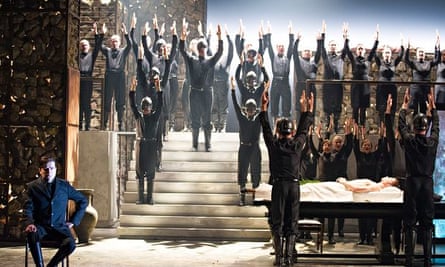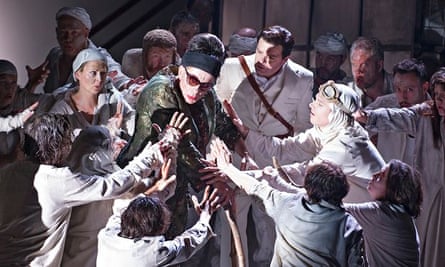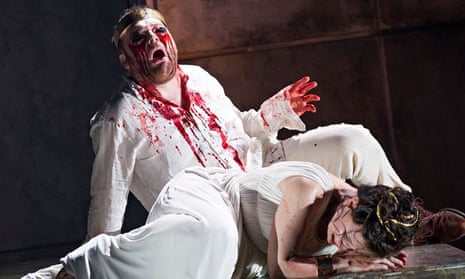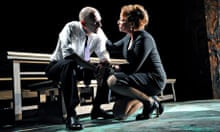Sophocles’s Oedipus trilogy is so revered as a foundational document of western civilisation that one forgets just how exciting the three plays are. One of the great qualities of Thebans – Julian Anderson’s dazzling new opera, to a libretto by Frank McGuinness, which received its world premiere on Saturday night – is that it blows apart this crippling reverence and presents the drama afresh. Indeed, for a story so well-known that it embodies as well as dramatises the idea of fate, the sense of uncertainty is remarkable.
This raw dramatic quality is partly due to McGuinness’s libretto, which keeps its language direct and the pace relentlessly high. Sophocles’ three plays are compressed into three high-octane acts, scarcely breaching 100 minutes' length. The chronological order of the second two plays is cleverly reversed, so that Antigone’s struggle with her tyrannical uncle is sandwiched between Oedipus’s fall from grace and his redemption in death. But the real magic comes from Anderson’s score, in which the directness of the libretto is simultaneously enhanced and fractured. Indeed, the clash between the score’s elemental rhythmic profile and the shimmering quality of its expanded harmonic language seems at once to slow and speed the action so that each event appears both inexorable and ambiguous.

Anderson’s opera thus gives access to the psychology of the action in a way in which few versions have managed, or attempted. The musical characterisation runs deep: Creon’s mellifluous style, for example, simply carries the orchestral parts with it, as if persuading reality to fall into step; Oedipus, by contrast, splits the texture, into high, biting strings and low clarinets, so that his discourse is more painful, more truthful. The superb solo writing is even eclipsed by that for the chorus, which, in its various guises as narrator, crowd, and the voice of Zeus, powerfully manifests the sense of community without which notions of shame and power have little meaning.

English National Opera have served Anderson well, with the orchestral and choral forces superbly prepared by Ed Gardner and his assistants, and the central roles well cast. Peter Hoare is exceptional as Creon, Roland Wood has the measure of Oedipus, while Julia Sporsen’s Antigone and Matthew Best’s gorgeously upholstered Tiresias are both outstanding. Directed by Pierre Audi, with designs by Tom Pye (set) and Christof Hetzer (costumes), the staging captures both the immediacy and timelessness of the drama. The second act, whose black (fascist) costumes contrast with the white (leper colony) of the first, is probably the most effective, but the production is efficient more than it is remarkable – aside, perhaps, from some mysterious features, such as the presence of Creon and Jocasta on stage during the first act when they are supposedly absent, or the representation of Colonus (“lush with olives, vines, laurels”) as a bomb site.




Comments (…)
Sign in or create your Guardian account to join the discussion